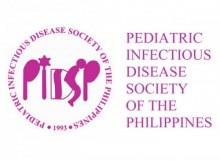Journal 2019 Vol.20 No.2
The Clinical Profile and Outcome of Children with Dengue Encephalitis at the Philippine Children’s Medical Center: A Retrospective Study From January 2011-June 2017
Kristine Alvarado-Dela Cruz, M.D., Madelyn P. Pascual, M.D. & Maria Eva Luna- Dizon, M.D.
Abstract
Background: Dengue, a mosquito-borne flavivirus, is hyperendemic in the Philippines. One of its rare complication is dengue encephalitis, characterized by altered sensorium, elevated liver enzymes, and high dengue-specific antibody titers. Previously known as non-neurotropic, dengue presents with an increasing incidence of neurologic manifestations.
Objective: To describe the clinico-demographic profile and outcome of laboratory-confirmed dengue encephalitis patients.
Methods: This is a retrospective study that used purposive sampling to describe laboratory-confirmed dengue encephalitis cases aged 0-18 years. The clinico-demographic profiles and outcomes were collected using chart review, and variables were analyzed using descriptive statistics.
Results: 14 laboratory-confirmed cases were reviewed. Most (57%) were males aged 3 days-15 years. Fever lasted 3-11 days. Following nonspecific signs and symptoms, neurological manifestations developed within 1-5 days, the most common being seizures (71%). Majority (57%) had anemia. All, except one, exhibited leukopenia and thrombocytopenia. Elevated liver enzymes, bleeding parameter derangements, electrolyte, and glucose imbalances were noted. All were seropositive for dengue IgM, and 5 dengue IgM in the CSF. Most common EEG findings showed generalized slowing. Neuroimaging reports were normal in some or showed cerebral edema in the others. Half of the patients recovered fully, 3 showing partial recovery from neurologic changes, and 3 others had neurologic sequelae. One infant expired.
Conclusions and Recommendations:
Dengue encephalitis should be considered in patients living in an endemic country, presenting with fever with neurologic changes or elevated liver enzymes, with a risk for developing neurologic sequelae or death.
Keywords: Dengue Encephalitis, Neurotropic virus, Severe Dengue
https://doi.org/10.56964/pidspj20192002003
| View Full Article in PDF format |
Journal 2019 Vol.20 No.2 Original Articles 1pidsp@uplink.com.ph2022-12-11T03:28:16+00:00
